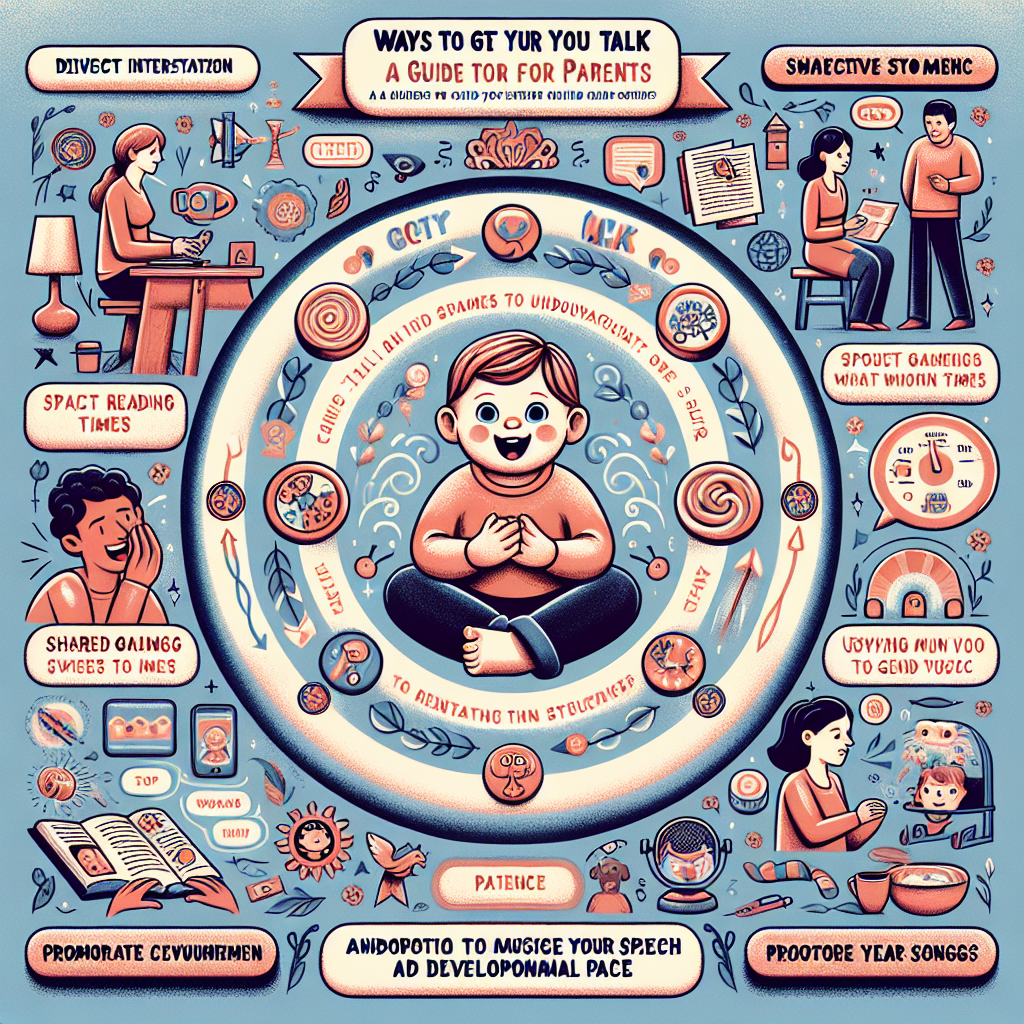Ways to Get Your Baby to Talk: Strategies for Parents
Introduction
In the fascinating journey of parenting, one of the key moments is when the baby starts to talk. Communication is essential for young children's social and emotional development, and parents play a crucial role in fostering their children's verbal skills. So how can we get the baby to talk? In this article, we will guide you through effective methods and proven strategies to support and encourage language development in young children.
Motor Development
The first steps in a child's language development begin with motor development. From rudimentary sucking and swallowing skills to coordinating lip, tongue, and jaw movements, all are essential to word formation. What can you do as a parent?
- Physical games are not only fun, but also educational. Choosing the right toys that encourage handling and coordination can have a direct impact on the development of the motor skills needed for speech.
- Imitating the sounds your baby makes is also a good strategy. By doing this, you encourage him to keep experimenting and learning new sounds.
Language development
Language develops gradually in children, and parents must be attentive to each stage in order to intervene in a positive way.
- Daily reading is an ideal practice to improve your child's vocabulary. Through reading, children are exposed to new words and ways of structuring sentences.
- Regular conversations and dialogue with the child are vital. Even though parents may tend to use simplified language, it is important to talk to the child as if they understand everything, providing explanations for unfamiliar words.
- Singing is a fun and effective way to learn new words and practice speaking rhythm and intonation.
Social Interaction
Socialization plays a key role in a child's language development. Frequent interactions with other children and adults give him the opportunity to listen and repeat words and phrases.
- Organize regular play dates so that the little one is exposed to different ways of communication and is encouraged to use language actively.
- Involvement in group activities , such as classes for young children, can further improve communication and social skills.
Educational Technologies and Applications
In the digital age, technology can become a valuable ally in encouraging the child to speak.
- Educational apps designed specifically for language development offer interactive activities, games and lessons that engage children and stimulate them to speak.
- Cartoons and educational programs can be used to expose your child to new words and expressions, but it's important to limit screen time and ensure the content is age-appropriate.
Additional Tips
There are other successful techniques to encourage speech in children.
- Model the words and phrases clearly and correctly so that the child can hear them and imitate them accurately.
- Using word-phrases with a single action or object to help the child associate the word with that action or object.
- Patience and encouragement are essential. Don't expect overnight progress and celebrate every new word or phrase your child says.
Conclusion
Language development is a complex and lengthy process that requires time, patience and a multitude of language experiences. By encouraging fine motor development, actively participating in conversations with your child, integrating technology in an educational way, and providing plenty of opportunities for social interaction, you can build a solid foundation of communication for your child.
Remember, each child is unique and will speak in their own time. Keep a positive attitude and be with them on this extraordinary journey. For more resources and educational toys, feel free to visit our store or subscribe to our newsletter for the latest news and tips for modern parents.














































































































































